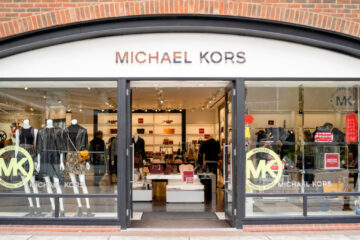It’s been around 20 years since Mike Lindell founded MyPillow in the mid-aughts, and while the company’s products are still well regarded by some customers, Lindell’s notoriety has grown for other reasons.
Initially, the company struggled to stay afloat as Lindell battled addiction and burned through cash before finally finding a sales tactic that changed everything in 2011: Airing a 30-minute, infomercial-style television ad, which cost a reported $500k to produce. Running repeatedly on a variety of local and national networks, the long-format ad sent annual sales skyrocketing from $3 million to $150 million.
💵💰Don’t miss the move: Subscribe to TheStreet’s free daily newsletter💰💵
The sudden popularity of the “world’s most comfortable pillow” allowed Lindell to move the product out of mall kiosks and into an array of major national retailers like Bed Bath & Beyond, Target, and Walmart via a licensing partnership with Telebrands Corp.
What’s going on with Mike Lindell & MyPillow?
Now, almost 15 years after the infomercial’s inaugural run, MyPillow is still in business, although it has liquidated much of its equipment and inventory to raise money for the ongoing costs associated with Lindell’s legal battles.
Since the 2020 presidential election, Lindell has led a highly publicized effort to proliferate debunked conspiracy theories alleging that the 2020 presidential election was rigged by voting machine companies and staff, and that Donald Trump was the real winner.
Lindell is a longtime supported of President Trump and is currently on trial for defamation as a result of his proliferation of debunked claims of voting fraud in the 2020 presidential election.
Kayla Bartkowski/Getty Images
The ongoing controversy surrounding Lindell’s election fraud claims and subsequent legal battles has eaten into the company’s ability to continue its operations and has also rapidly eroded the wealth of the polarizing man behind the once-popular product.
MyPillow’s products can still be found on the brand’s own website and on mass online retailer Amazon, although the company has been dropped from Walmart’s inventory and that of most other large retailers due to Lindell’s views and public efforts outside of the company, leaving many to wonder if it has a future.
Here’s what you need to know about Mike Lindell’s net worth in 2025, how he made his money, and why he’s so controversial.
What is Mike Lindell’s net worth in 2025?
While Lindell’s current net worth isn’t exactly clear, but it’s been falling drastically since he began his voting fraud crusade after the 2020 presidential election.
While testifying on June 9, 2025, during his defamation trial, he stated that while he was once worth $60 million, he is now in millions of dollars of debt due to the legal costs, indicating a negative net worth of at least one or two million dollars as of mid-2025.
In the description for an online fundraiser for Lindell’s legal battle, his team asserts that he “has spent everything he has, even borrowed money to keep fighting back against this lawfare.”
Related: George Santos’ net worth as he seeks presidential pardon
Back in 2023, Lindell stated that he was worth only $10,000 as a result of the money he had spent during his crusade to prove that the 2020 presidential election was rigged.
Lindell’s current defamation trial is the result of a lawsuit filed by Eric Coomer, a former director of product strategy at Dominion Voting Systems, which alleges that Lindell and his business entities, including MyPillow, proliferated “baseless conspiracy theories claiming election fraud in the 2020 election.”
Lindell is seen here holding a press conference outside the Colorado courthouse in which his defamation trial is underway.
Helen H. Richardson/MediaNews Group/The Denver Post via Getty Images/Getty Images
Who is suing Mike Lindell and why?
The above-mentioned lawsuit from Eric Coomer is the one currently being litigated, but Lindell is the subject of two other defamation lawsuits that have yet to reach trial.
Coomer’s complaint alleges that Lindell’s statements indicating that Coomer rigged the 2020 election resulted in his reputation being “irreparably tarnished” and inspiring individuals to send him credible death threats.
The lawsuit states that Lindell “has claimed, without evidence, that Dr. Coomer committed treason and that he should turn himself in to the authorities … maligning Dr. Coomer on the website frankspeech.com often alongside a sales pitch for products from MyPillow.” Most witness testimony for this particular case has been heard, so Lindell’s civil trial for this lawsuit could come to a close at any time.
Other lawsuits come from Dominion Voting Systems (where Coomer used to be a director) and Smartmatic, another voting system company. Both allege that Lindel proliferated demonstrably false statements about the company’s respective voting systems that led to financial and reputational damage.
Related: Pam Bondi’s net worth: From Florida prosecutor to U.S. Attorney General
How is Mike Lindell funding his legal battle?
Currently, Lindell is fundraising on crowdfunding site GiveSendGo, calling his defamation trial “one of the most important jury trials in history and the gateway to getting rid of the voting machines and secure our elections” in his fundraiser’s description.
As of June 10, 2025, the campaign had pulled in almost $400,000 in donations — a hefty sum, but nowhere near enough to cover the millions he already owes.
Lindell also continues to use his company’s remaining assets to generate income for his legal costs. On June 4, he shared a post on X that read, “My employee-owned company and I are in jury trial NOW and need your support! Get a FREE USA Revival Multi-Use MyPillow 2.0 with ANY purchase with promo code JURY.”
More net worth:
Ralph Macchio’s net worth: A revived career for the Karate Kid starDara Khosrowshahi’s net worth: The Uber CEO’s wealth & incomeKelsey Grammer’s net worth: The ‘Cheers’ star’s wealth at 70
This effort seems to be an expansion of a business practice the company has been criticized for in the past — constantly offering a discount on its primary product, thus rendering the discount meaningless.
The company’s ongoing buy-one-get-one-free offer resulted in its Better Business Bureau grade being lowered from an “A” to an “F” in 2017 after repeated customer complaints. Section 14.2 of the BBB’s code of advertising states that any “‘free’ offer should be temporary; otherwise, consumers may view it as a continuous combination offer, no part of which is free.”
Related: Mike Waltz’s net worth: From Green Beret to National Security Advisor
Who is Mike Lindell? His life, career & downfall explained
Mike Lindell’s story is a sad one, and based on how things are currently going, any hope of a happy — or wealthy — ending remains far off.
He grew up in Minnesota, where he would eventually launch MyPillow after a slew of other failed business ventures. Born in 1961, Lindell’s proclivity for addictive behavior emerged early. According to his autobiography, he developed a gambling problem during his teenage years, and while he did attend the University of Minnesota after high school, he dropped out after a single quarter. Soon after, he lost the grocery store job he had been working during his brief stint as an undergraduate.
After this, Lindell got into cocaine, caught the entrepreneurial bug, and began attempting to launch businesses. When carpet cleaning didn’t work, he tried card counting, but after being forcibly ejected from a casino after complaining to a pit boss about a dealer, he pivoted once again — this time to raising pigs. Unfortunately, this wasn’t his million-dollar idea either. In his words, “the hog market collapsed and I lost everything.”
After a couple more failed ventures and odd jobs, Lindell finally did find his million-dollar idea — it came to him in a dream while he was still in active addiction. In 2004, Lindell conceived of MyPillow, a perfect pillow that would always hold its shape. He filled his family in on his revelation, and with the help of his son, he began cutting up foam, learning how to sew, and creating prototypes.
Soon, he had a finished product. He tried pitching his product in person at a Bed, Bath & Beyond, but that didn’t work, so he decided to open a kiosk in a shopping mall to sell his creations during the holiday shopping season. He made some sales, but they didn’t offset the cost of the kiosk. Soon, though, he found moderate success selling MyPillow at a local home show.
Related: Kristi Noem’s net worth: From rancher to Homeland Security chief
About four years into MyPillow, Lindell hit his personal rock bottom, losing his spouse and his house due to his increasingly severe crack cocaine addiction. In early 2009, though, Lindell says he overcame his addiction through prayer and never craved the drug again.
A couple of years later, he aired the fateful infomercial that would transform MyPillow from a moderate local success into a nationwide phenomenon, and the rest was history. By 2017, he had spent $100 million producing and airing commercials and had almost 1,500 individuals in his employ as annual revenues reached a whopping $300 million.
By this point, Donald Trump was president, and Lindell had become a superfan, saying “This guy is going to be the most amazing president in history.” Trump even invited Lindell to a personal meeting and praised MyPillow for providing domestic manufacturing jobs to Americans.
Lindell is still a massive supporter of the once-again president, and despite losing his once-considerable wealth to his conspiratorial voting-fraud crusade, he maintains his view that the results of the 2020 election were rigged in favor of former president Joe Biden.
With his wealth gone, his debts growing, one civil case in trial, and two more pending, only time will tell what the future holds for Lindell and MyPillow.
Related: Kamala Harris’ net worth in 2025: How rich is the former VP?


